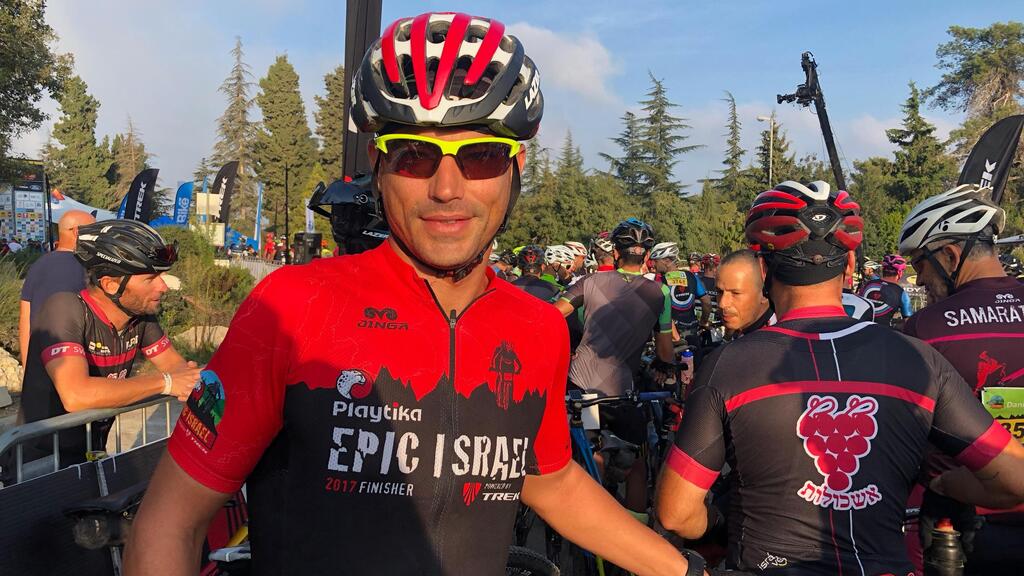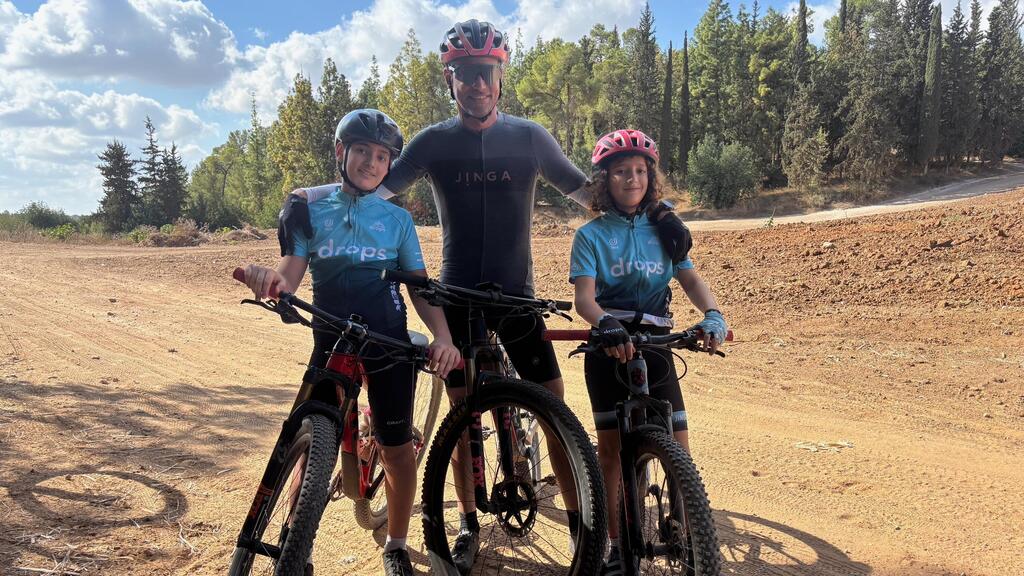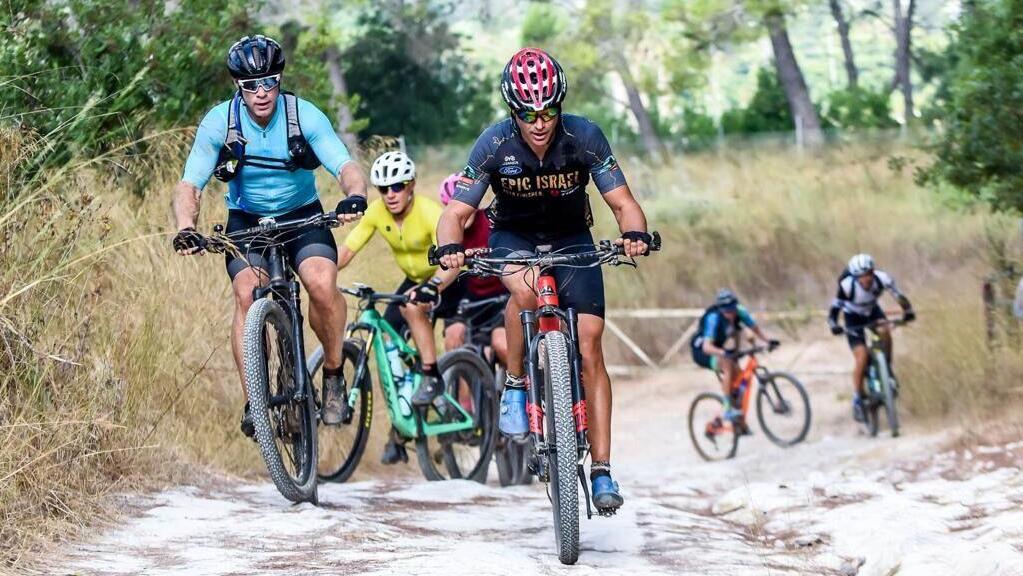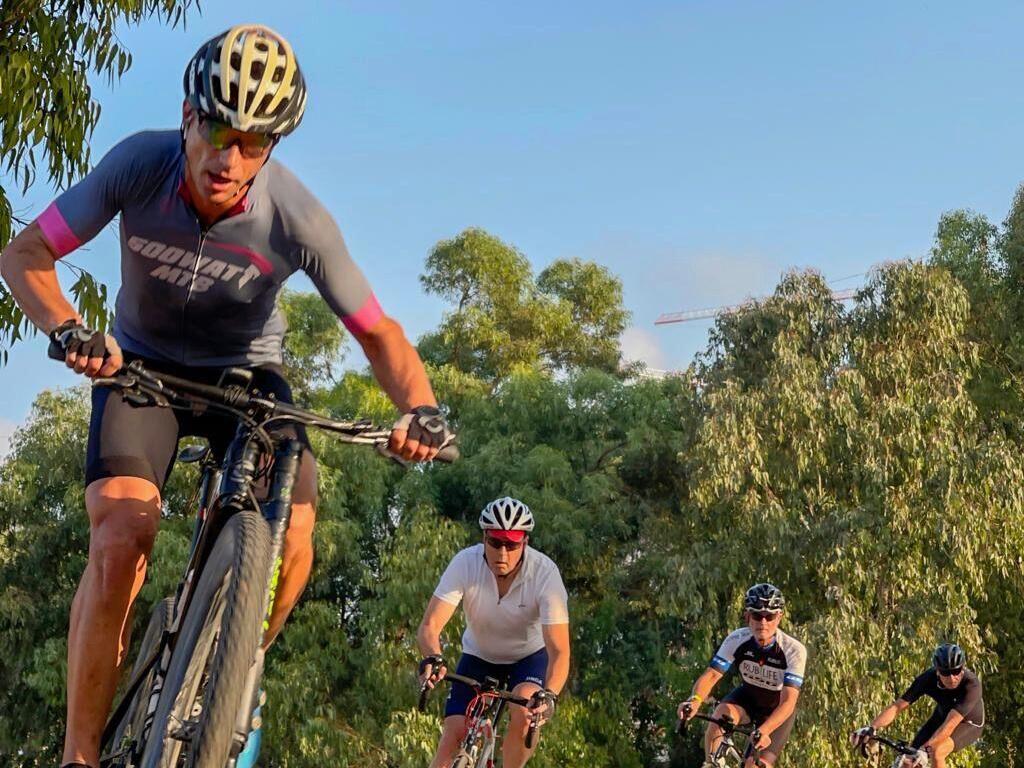Getting your Trinity Audio player ready...
Roy Loewenberg, 46, a father of two, began cycling when he was 12. A year later, he received a road bike as a bar mitzvah gift. "It was love at first ride," he says. After a grueling six-month battle with leukemia, he’s set to represent Israel in the 2025 Tour de France as part of the Cure Leukaemia team.
A four-time Israeli road cycling champion, Roy was a member of the national team, competed abroad and frequently placed among the top finishers. "Cycling became part of my identity. As a kid, I trained five times a week. I even made the cover of Cycling Magazine twice, with various articles about me in local papers and sports sections."
His first competitions as a teenager earned him respectable placements, motivating him further. "That's when the connection happened. I stood out, unlike in other sports I didn't relate to," he recalls.
"Success helped me bond with cycling, giving me a lot of confidence. I took it very seriously. I was punished at home by being banned from training. My coach became a key figure in my life — when I had issues in school, they’d consult him." Around 30, after a long break, Roy returned to cycling, focusing on mountain biking with local groups.
'I returned from the hospital a ruined man'
In October 2023, a week after Hamas’ murderous attack, Roy woke at 5 a.m. with intense chest pain, thinking it was a heart attack. Hospital tests found nothing and he was sent home with painkillers.
By February 2024, after experiencing severe bone pain, he was admitted to Rabin Medical Center, where he was diagnosed with advanced acute leukemia. "There was nothing left of my immune system except cancer cells," he says.
After the initial shock, he asked his doctor if there was any hope. "The doctor said ‘Yes, you can fully recover. It’ll take time and you'll need luck, but it's possible.’" From that moment, Roy approached his recovery like cycling: "The minute I heard there was a chance, I knew I’d make it."
He recalls: "I was crying for 10 minutes before entering 'mission mode.' I knew it would be like a long bike race, but I’d win. Mental fortitude is powerful. For example, whenever I got good test results, I’d stand and share the news with the ward — even when I could barely get out of bed. No medicine could do that. I stayed optimistic throughout."
During his first difficult week, he was treated with massive doses of morphine to ease the pain of what he describes as his "bones exploding." Afterward came life-saving chemotherapy: a week of intense, continuous treatment.
Roy spent five weeks in the hospital, receiving treatments to destroy diseased bone marrow and generate new marrow. "After the hospital stay, I rested for a month at home to regain strength for another round of chemo and a bone marrow transplant. I returned home a ruined man. My cycling friends brought me a trainer and I started exercising. I had one month to gain weight and recover."
"After the hospital stay, I rested for a month at home to regain strength for another round of chemo and a bone marrow transplant. I returned home a ruined man. My cycling friends brought me a trainer and I started exercising. I had one month to gain weight and recover."
Three months after the transplant, Roy slowly rebuilt his life. "I was lucky — my younger sister was a perfect donor match and I responded well to chemotherapy. Throughout my hospitalization, I made sure to move. I’d take two or three walks a day even when I felt terrible. I never gave up on myself."
'There are setbacks'
In the last two months, Roy has faced side effects caused by his ordeal, including digestive issues and weight loss, yet he hasn’t stopped cycling. "Last Friday, I joined a charity ride for Beit HaShanti (a shelter for at-risk youth) — a 90 km [56 mi] mountain bike journey from Tel Aviv to the outskirts of Jerusalem. The entry fee is making a donation and the cause motivated me to participate."
"I’m a shadow of my former self," he admits, "but it’s all in the mind. There are setbacks, but I still cycled 90 km because, for me, this is mental, not physical. I’m confident I’ll overcome this and be okay." His message to others battling cancer is to maintain faith and positivity. "It has immense power over outcomes and recovery speed. I see it at every stage of my journey."
Roy shares his connection with Lee Korzits, a four-time world champion windsurfer also recovering from leukemia. "She’s undergone two bone marrow transplants. There’s a strong camaraderie among patients. We visit the hospital weekly, meet regularly and encourage each other."
'Two things integral to my identity'
Roy posts stories of his rides on his Instagram account, inspiring followers. "I show myself cycling, looking healthy and active. It gives others, including patients, hope that recovery is possible."
Cycling helped him stay strong between treatments. When he learned about the global fundraising event for leukemia at the Tour de France, he was thrilled to combine his passion with a cause dear to him. "It felt like the perfect match — two things integral to my identity."
Get the Ynetnews app on your smartphone: Google Play: https://bit.ly/4eJ37pE | Apple App Store: https://bit.ly/3ZL7iNv
The event involves riding the full Tour route: 21 stages, 3,500 km [2,175 mi], and over 50,000 meters [164,000 ft] of climbing. The 20 participants — patients or relatives of leukemia patients — will start on June 28, 2025, a week before the official race, aiming to raise funds and awareness for leukemia research. Roy must raise NIS 240,000 ($60,000) to participate.
"I was crying for 10 minutes before entering 'mission mode.' I knew it would be like a long bike race, but I’d win. Mental fortitude is powerful. For example, whenever I got good test results, I’d stand and share the news with the ward — even when I could barely get out of bed. No medicine could do that. I stayed optimistic throughout."
The team will ride like a professional tour squad, supported by motorbikes, support cars, doctors and masseurs. Each rider must raise funds as a condition of participation. To achieve this, Roy launched a crowdfunding project.
Participating costs about NIS 45,000 ($11,250), with an additional NIS 130,000 ($32,500) donation commitment. "There’s an Israeli professional cycling team backed by Israeli-Canadian businessman Sylvan Adams. It’s the first Israeli team in the Tour de France. I’m in contact with them and they might sponsor me."
Ending on an optimistic note, Roy added, "If I finish the Tour route — no, sorry — when I finish, I’ll be the third Israeli rider ever to do so."





